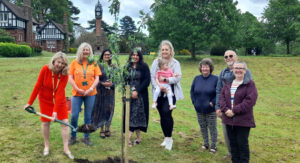Local agencies struggle to prioritise early help for children and families
The lack of capacity and resources across health, police and social care is limiting local areas’ ability to make early help services a clear priority, according to a joint report by three regulatory bodies.
The report – by Ofsted, the Care Quality Commission (CQC) and His Majesty’s Inspector of Constabulary, Fire and Rescue Services (HMICFRS) – drew on the inspections of five local authority areas to evaluate how local partners, including children’s social care, health services, schools, police and wider services work together to support children and families who need help.
The five areas covered as part of the joint inspection were Bedford, Harrow, Sunderland, Surrey and Wirral.
The report found that early help was effective where all leaders understood how to meet the needs of their local areas and worked with partners and local communities to make sure services were accessible. It also found that local partners were not equally engaged in delivering and making decisions about the early help services in their area.
Across the local agencies, the report found there were well-trained and knowledgeable early help workers from a range of agencies undertaking effective work with children and families. However, staff working in early help services were increasingly working with highly complex family situations, and sometimes above a level they felt was appropriate. Knowing where to go if risks escalate was key and for some children and families the skills and expertise of a social worker was needed. Without that social work oversight, children did not get the right help at the right time.
The three inspectorates called for proposed government reforms to children’s social care to take account of the variability between local areas and the capacity within the different agencies to deliver effective early help services.
Yvette Stanley, Ofsted’s national director for social care, said: ‘Getting the right response at the right time is critical to meeting children’s and families’ needs before things escalate. Prioritising early help is a real challenge for local areas and children and families don’t always get the help they need when they need it.
‘A multi-agency approach, that effectively brings together partners across children’s social care, health services, schools, the police and the voluntary sector, is essential. The excellent work we saw during these inspections, where local partners engaged and developed services tailored to their communities’ needs, should become expected practice.’
Nigel Thompson, deputy director for multiagency operations at the CQC, said: ‘Faced with workforce and resource pressures, people working in and across services have managed to develop ways of working with the needs of children and their families at the centre.
‘However, the variation we have seen across areas highlights how important it is that the opportunity to learn from this is not lost. Without a shared knowledge, as well as a shared commitment, the offer to children and their families will remain inconsistent.’
HMICFRS inspector Michelle Skeer said: ‘Ensuring children and families have access to early help is crucial. We saw some good examples of police forces sharing timely information with partners and conducting early intervention programmes that benefitted children.
‘But police forces and other agencies cannot work in isolation, and an effective multi-agency collaborative approach is key to ensuring children get the right help at the right time. This should be done consistently.’
Image: Toa Heftiba
WHO produced first ever report to help keep children safe online















